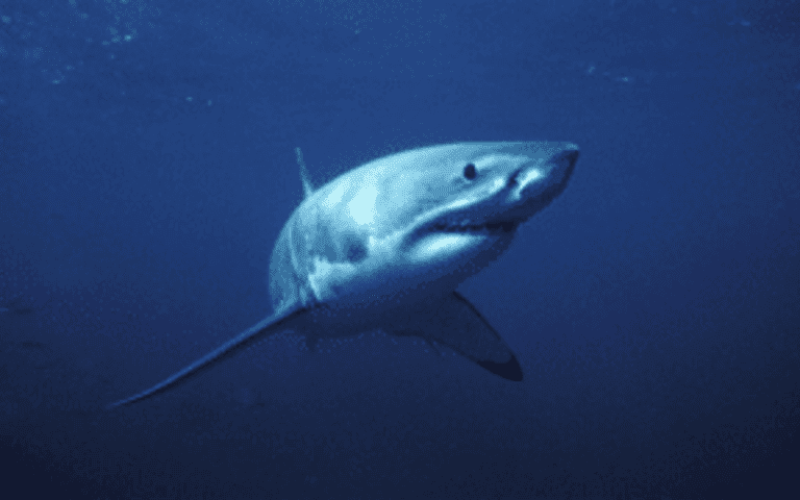Sharks often get a bad rap in the public eye and in fictional media. They’re feared presences at beaches, seemingly ready to attack any unfortunate swimmer or surfer that enters their territory and familiar media menaces, as powerful, relentless antagonists in Jaws and Megalodon, ridiculous natural disasters in the Sharknado series, or worst of all, earworm-inducing cartoon characters.
But do sharks deserve their common reputation as bloodthirsty killers and threats to any human who dares to enter the ocean? In his book Emperors of the Deep (2019), author and filmmaker William McKeever swims against the tide to present the marine animal as an intelligent, curious, and vitally important guardian of the ocean.
Taking a Deep Dive into the Aquatic World
https://gty.im/1297381834
In Emperors of the Deep, McKeever takes readers all over the world to learn about different species of sharks, from great whites swimming up the coasts of New York and New Jersey in the United States to tigers patrolling the Great Barrier Reef off Queensland, Australia, to lemons navigating through mangrove swamps in the Bahamas. At each stop on his journey, McKeever meets with marine biologists, conservationists, university professors, and tourism officials to discuss the biology, intelligence, behaviors, and ecological niches of different species in those areas.
McKeever emphasizes how these marine creatures help preserve the health and biological diversity of various marine environments. As apex predators, they help prevent populations of fish and seals from growing unsustainably, keep seals from overeating schools of fish, and prevent fish from overgrazing on seagrass and coral reefs, both of which are major food sources and protective habitats for marine life.
Exploring a Complicated Relationship
McKeever challenges common beliefs that sharks are overly aggressive towards humans. While multiple attacks occur around the world each year, the animals usually go after swimmers, divers, and surfers by mistake. They either make an exploratory bite to determine what the human is and then swim away, or they confuse humans for more common prey like seals. Every year, less than 100 people are attacked by, and less than ten people are killed by sharks, making the animals less likely causes of death than car crashes, lightning strikes, or dog or bee attacks.
Humans are actually the bigger threat. Around 100 million sharks die every year due to human activity: many are killed in hunting contests; more are caught in fishing trawls and either die on the line or have their fins cut off to use in soup; and even more are threatened by climate change that raises water temperatures in their habitats beyond their tolerance levels.
Humans have also fought to defend these animals from violence and exploitation. Groups like the World Wildlife Fund (WWF), Greenpeace, and the AfriOceans Conservation Alliance advocate for sharks to have greater protections against being killed by hunters, unintentionally caught in and exploited by large-scale commercial fishing operations, and having their habitats being damaged by humans and climate change.
Showing the Benefits of Shark Conservation
McKeever explains how these apex predators are essential to keeping the oceanic food chain balanced and healthy. When humans hunt them for sport or catch them on big commercial fishing lines, they often disrupt delicate food chains and fisheries that so much of the world relies on for food. In order to help depleted fish populations recover, McKeever states, people should reduce their demand for seafood, implement more sustainable fishing practices, and impose stricter international laws to curtail illegal fishing operations.
McKeever also argues that the animals can be more economically viable as ecotourism attractions than as hunting trophies or ingredients in soup. Just like how McKeever was always fascinated by these animals and traveled to various parts of the world to encounter and learn about them, plenty of tourists would be interested in traveling to different countries like South Africa, home to many great whites, and paying to dive and see them up close and personal.
According to McKeever, ocean environments are much healthier and livelier for all species when there are plenty of sharks around. Thus, if we want future generations to have healthier oceans to swim in and support marine life, we should all want to protect these magnificent creatures.
Final Thoughts
In Emperors of the Deep, McKeever does an excellent job of combatting myths about sharks being scary, aggressive, or evil and showing how vital they are to the health of marine ecosystems. He also makes it clear how conversation is a necessary action humans must take to help not only these remarkable marine animals but also the oceans and themselves.
Sharks shouldn’t be our enemies; their benefits to the world are immeasurable. It’s good they have advocates like William McKeever to show just what amazing and important animals they are.
If You Enjoyed This Article, You’ll Want to Check Out These Other Animal-Themed Articles:
- Tigers: 1 Tiger’s Journey of Survival, Motherhood, and Redemption
- Coyote America Champions a Much-Maligned Canine
- Beloved Classic: The Kissing Hand and the Importance of Touch
For More Great Content
Total Apex is an all-encompassing content producer. We provide heavily detailed articles every day on entertainment, gaming, sports, and so much more! For more exemplary gaming and entertainment content, read our daily content on these sites: Total Apex Gaming and Total Apex Entertainment.








